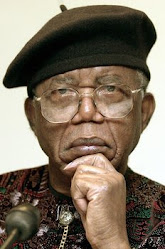 David Lurie is a fifty-two year old college professor in South Africa. He's a two-time divorcee and father to one child, his daughter Lucy. David lives alone and he has sorted his life into a routine that seems to be working well for him. He teaches a college class, grades papers, makes weekly trips to a brothel, and also engages in casual sexual encounters every now and then. He's quite content with the loneliness that comes with this freedom to do as he pleases. One day he runs into a girl who's a student in his college class. He invites her home and sometime later they begin having sexual relations until it all goes wrong. Horribly wrong. In the wake of the ensuing scandal his entire academic career and everything he has worked hard for are on the line. In the chaos you'd be forgiven to anticipate that the plot of Disgrace would head down a certain path but it doesn't. The path it takes instead is shocking and disturbing.
David Lurie is a fifty-two year old college professor in South Africa. He's a two-time divorcee and father to one child, his daughter Lucy. David lives alone and he has sorted his life into a routine that seems to be working well for him. He teaches a college class, grades papers, makes weekly trips to a brothel, and also engages in casual sexual encounters every now and then. He's quite content with the loneliness that comes with this freedom to do as he pleases. One day he runs into a girl who's a student in his college class. He invites her home and sometime later they begin having sexual relations until it all goes wrong. Horribly wrong. In the wake of the ensuing scandal his entire academic career and everything he has worked hard for are on the line. In the chaos you'd be forgiven to anticipate that the plot of Disgrace would head down a certain path but it doesn't. The path it takes instead is shocking and disturbing.Disgrace is a great novel. I say that reluctantly not because I doubt its greatness but because of the story itself. I'm just a little reluctant to tie the word "great" to what goes on in this book. I put it down a lot so I could pause to sort out and cool the rising disquiet and the occasional horror. Thoughts like "What???", "What's going on???" "What are you saying???", and "Oh my God..." kept surfacing during my reading. Disgrace is not a convoluted tale that seeks to impress. It stays with you because it's so real. You know this is how life works in some parts of the world and it's frightening. It's messed up. It's so messed up. Our world is messed up. The point where Coetzee leaves us doesn't soothe the readers anxiety. I just sat there after I was done, trying to put it all together and also using my imagination to project what happens afterwards. Disgrace won the Man Booker Prize in 1999 making J.M. Coetzee a two time winner of the prestigious prize at the age of fifty-nine. You should read it.
[Image via Middlemiss]




















